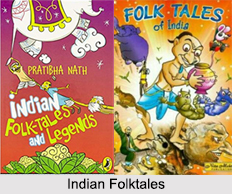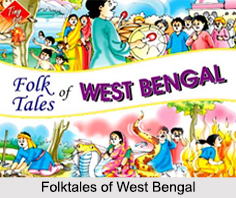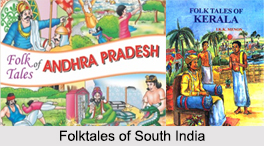 Indian Folktales primarily spell out morals to their listeners. An interesting aspect of the Indian Folktales is that these are an important part of the oral literature in India. Almost in every household children grow up listening to native folklores and folktales. Although the Indian Folktales are more a part of the country"s culture but their literary significance cannot be denied. The folklores of the renowned fables of "Panchatantra", "Hitopadesha" and "Jataka" are immensely popular among Indians.
Indian Folktales primarily spell out morals to their listeners. An interesting aspect of the Indian Folktales is that these are an important part of the oral literature in India. Almost in every household children grow up listening to native folklores and folktales. Although the Indian Folktales are more a part of the country"s culture but their literary significance cannot be denied. The folklores of the renowned fables of "Panchatantra", "Hitopadesha" and "Jataka" are immensely popular among Indians.
One important aspect of these Indian Folktales is that these deal with common people. During ancient ages such Indian tales followed the oral tradition. However, with time the writing traditions developed and then these were compiled into several books.
The enormous treasure house of Indian Folktales consists of tales pertaining to all religions and regions. Most of the Indian Folktales revolve around rural set ups. Numerable states of India have different kinds of folk tales associated to their cultures. Some of them are as follows:
Folktales of West Bengal
The state of West Bengal is famous for its poets, writers and artists. The story of "Kaka-Kaki" and "Tuntuni" are amongst the several interesting folktales of West Bengal. Many of the stories in the Folktales of West Bengal consist of a far-away land, involving kings and queens, royal children and demons. Playing with themes of good and evil, these tales often conclude with a moral lesson, making them ideal for children.
 Folktales of Andhra Pradesh
Folktales of Andhra Pradesh
Andhra Pradesh possesses numerable folktales which are gender specific. In such stories, family is considered the epicentre of power and authority which determines the roles of both the genders. Most folktales of this state portray women as the principal decision makers of the family while the interactions among men are not demonstrated with much clarity.
Folktales of Uttar Pradesh
Folklore of this Indian state concentrates mainly on the tales of Maulvi Sahibs. The Maulvi Sahibs are learned, wise men, many of whom can be found teaching in village schools even today. The Qazi of Jaunpur is a popular folktale of this region.
Folktales of Kerala
Folktales of Kerala are varied and unique, which assert the existence of the origins of Kerala, its regional festivals, temples and religions. For instance, the legends of "Parasurama" and the "Mahabali" legend which traces the evolution of the local festival of Onam are interesting folktales of Kerala.
 Folktales of Other Indian States
Folktales of Other Indian States
While some of the Indian folktales dealt with the common folks, Gujarati folktales, Rajasthani folktales, etc. narrate tales of courage shown by ordinary women. Tales of justice, common sense, wit, greed and matters pertaining to the social structure form the subject matter of Meghalaya folktales, Tamil Nadu folktales, Sikkimese folktales, Himachal Pradesh folktales, Delhi folktales, Madhya Pradesh folktales, Oriya folktales, Haryana folktales and others.
In fact in ancient India, narrating tales was one of the most popular ways of spreading awareness amongst the commoners. Time and again, even the Indian religious gurus, such as, Gautama Buddha, Mahavira, Sai Baba and others have adopted this method to bring enlightenment. India has been always been subjected to invasions. An amalgamation of different cultures has also led to a myriad of Indian Folktales. While discussing about such tales one cannot possibly forget the witty tales revolving around Akbar and Birbal. Some of the Indian Folktales are also borrowed from Hindu myths.
The beauty and charm of the Indian Folktales lie in their variety. Being a land of diverse culture and traditions, India boasts of a wide variety of folklore, which has been a significant part of the Indian culture since centuries.



















